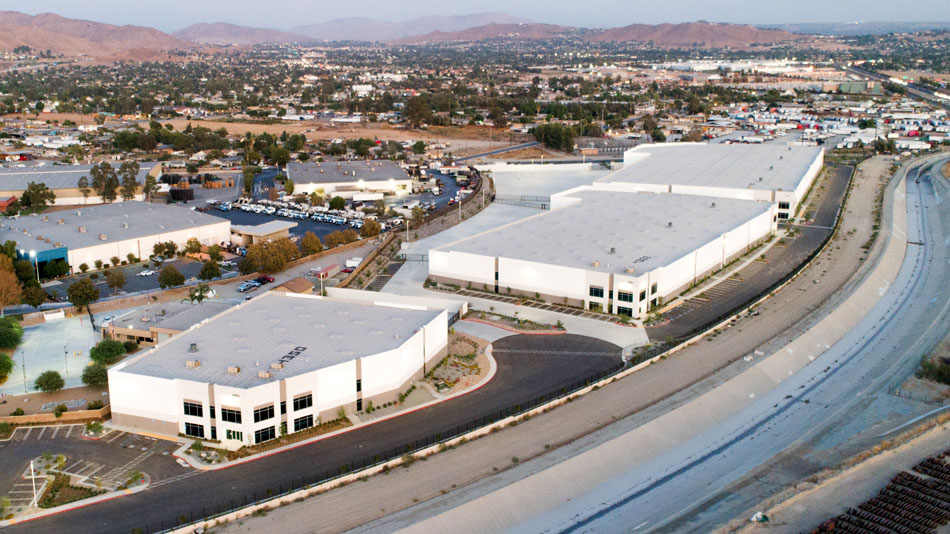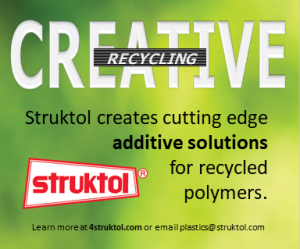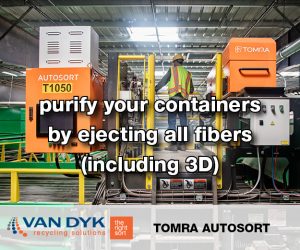
PreZero Polymers’ Jurupa Valley, Calif. campus, which is set to open early next year, will process post-consumer film. | Image courtesy of PreZero US
A joint venture is set to launch two U.S. processing plants for hard-to-recycle plastics in 2020, bringing new outlets for lower-grade materials. Investments in the projects will total at least $90 million.
PreZero Polymers will open a mixed rigids recycling facility in South Carolina and a film recycling plant in southern California. In the years after the facilities start up, PreZero anticipates expanding each so they are both processing mixed rigids and film.
PreZero Polymers is a partnership between plastics recycling company ACI Plastics and PreZero, which has built processing facilities for a variety of material streams.
After the first two facilities get underway, project partners say they anticipate expanding with additional plastics processing plants elsewhere in the country.
“We’re proving out these first two. In the meantime, we’re looking at the other markets and other difficult-to-recycle plastics,” said Scott Melton, president of ACI Plastics.
Mixed rigids outlet in the South
The Westminster, S.C. plant will be an expansion to an existing ACI facility. The expansion will process an estimated 50 million pounds of mixed rigids per year. The project costs about $10 million.
The facility will shred, wash, sort and pelletize bales of Nos. 2-7 and 3-7 plastic bales generated by materials recovery facilities (MRFs).
“There’s so much volume in the Midwest, mid-east, Southeast,” Melton said. “There’s a lot of material out there.”
The operation will provide an outlet for materials that have challenged recycling programs: Since overseas markets for low-grade plastics became spotty, some communities have found themselves disposing of the materials or cutting them from their programs.
“A lot of MRFs turned off their mixed rigids collection; we want to incentivize them and say, ‘We’re here for the long run and we want to be a reliable outlet for you,'” said Hendrik Dullinger, vice president of PreZero US.
Melton said the plant will be up and running during the second quarter of 2020.
Film focus on the West Coast
PreZero Polymers is also starting up a processing operation for a variety of material types in Southern California. This massive campus, totaling 325,000 square feet and costing $80 million, will include film processing capabilities.
Located near Riverside, Calif., the operation will process an estimated 25 million pounds of film per year, with room for expansion. It will bring in LDPE and LLDPE film from a handful of sources, focusing on cleaner streams. That includes film collected through store drop-off programs, post-commercial sources and more.
PreZero and ACI will shred, wash and pelletize film. Among other end users, the pellets will be marketed to California reusable bag producers, who are mandated by the state to manufacture their products with 20% post-consumer content. That requirement increases to 40% in 2020.
The site plans to begin processing in the first quarter of 2020.
PreZero joins another major film processing investment slated to come on-line in 2020. Avangard Innovative plans to build three film recycling plants next year, taking in post-commercial film.
Genesis of the project
ACI has been operating since 1986 and has facilities in Arizona, Michigan, Nebraska and South Carolina. The company for the past decade has been focusing on difficult-to-handle materials, Melton said.
He began looking into post-consumer mixed rigids processing about six years ago, touring facilities across Europe to learn about equipment and how the materials are processed there. In 2018, he began talking with the PreZero team (the company was then known as GreenCycle).
PreZero is part of the Schwarz Group, a German retail company that is heavily involved in waste management and recycling in Europe. PreZero in 2018 acquired San Diego-based Resource Management Group, a waste management firm collecting plastics and other materials from commercial and industrial sources.
PreZero was interested in getting into plastics processing in the U.S., and the company began working with ACI. PreZero already had equipment connections through its European operations, which facilitated purchases for the new processing sites.
Then, the project entered a 12-to-14-month research and testing phase. PreZero began sourcing a handful of bales from MRFs, looking to get an idea of how much PE and PP were typically included. They then began pelletizing loads to determine the properties of the output resin. The research and test gave the partners an estimate of the yield and resin properties they could anticipate.
“We’re both convinced we have a good system,” Melton said.
More stories about processing



